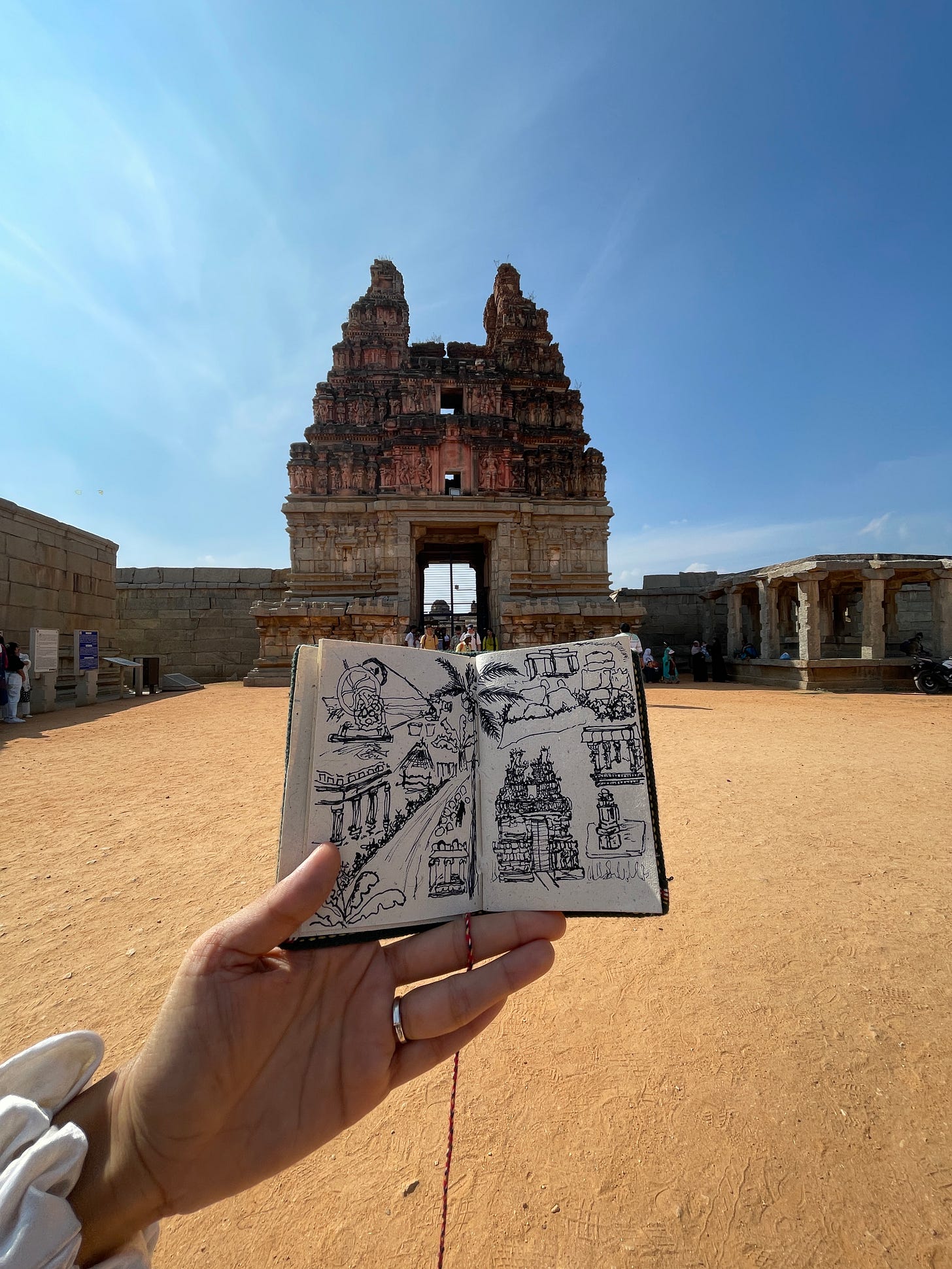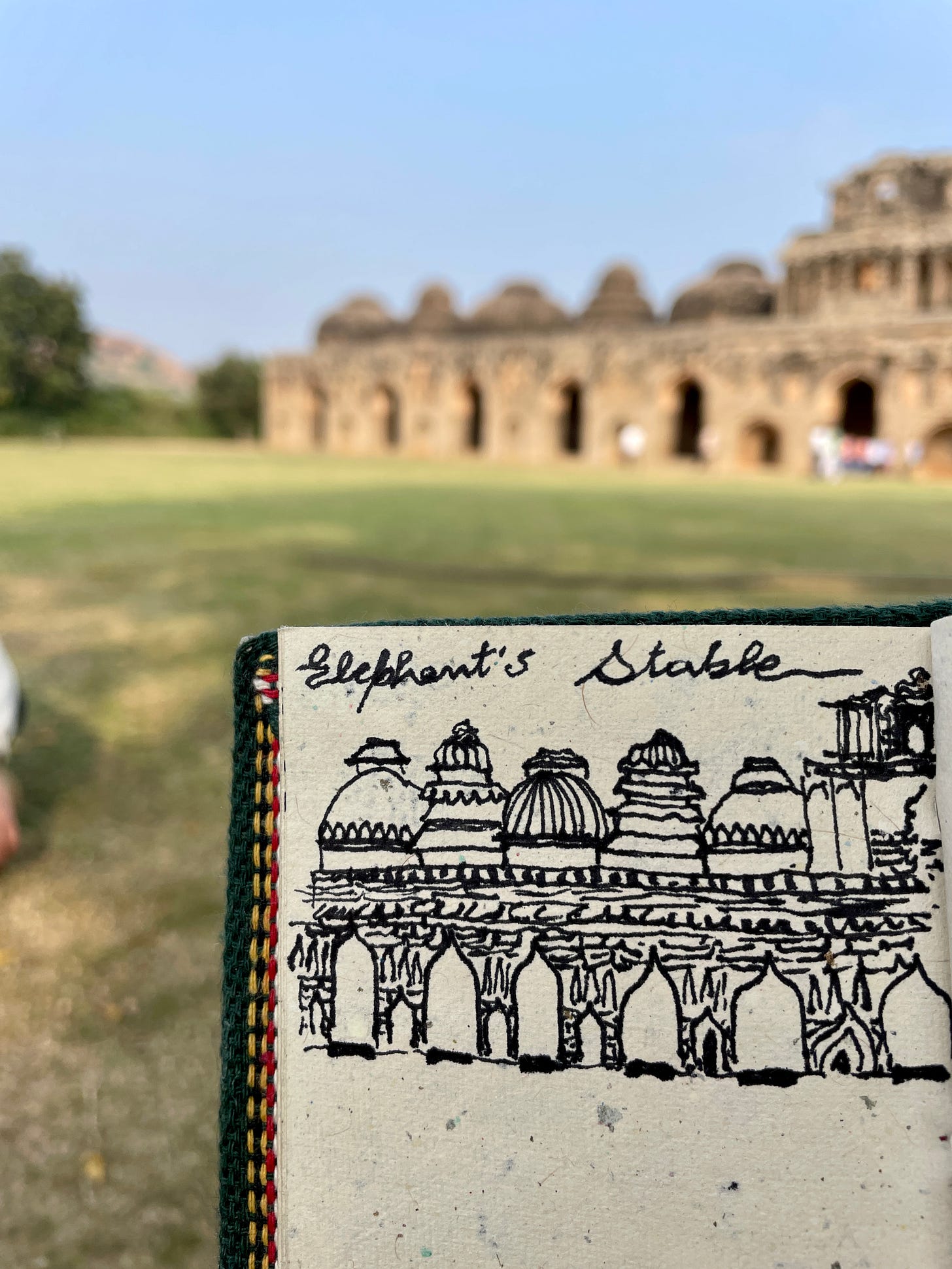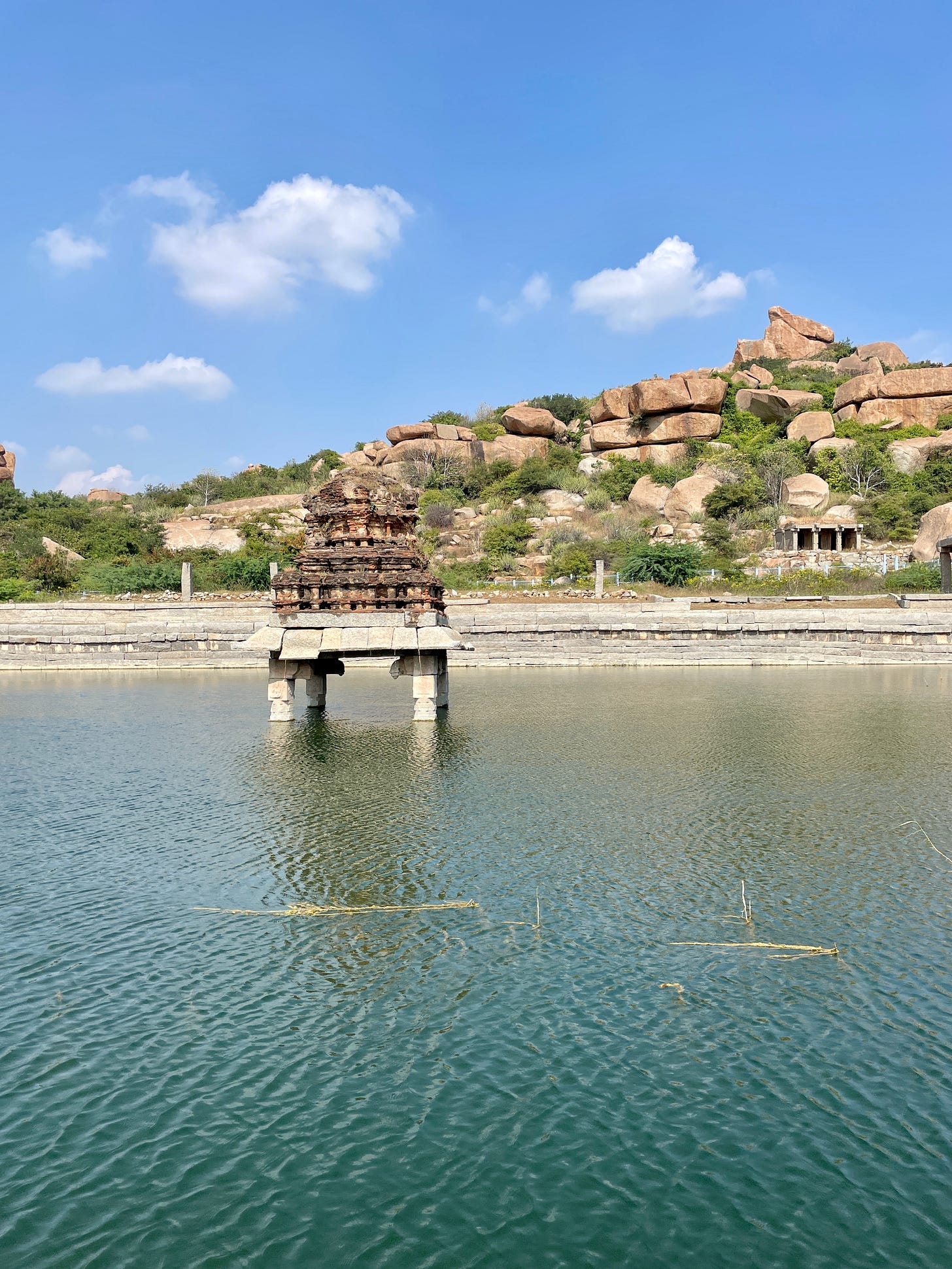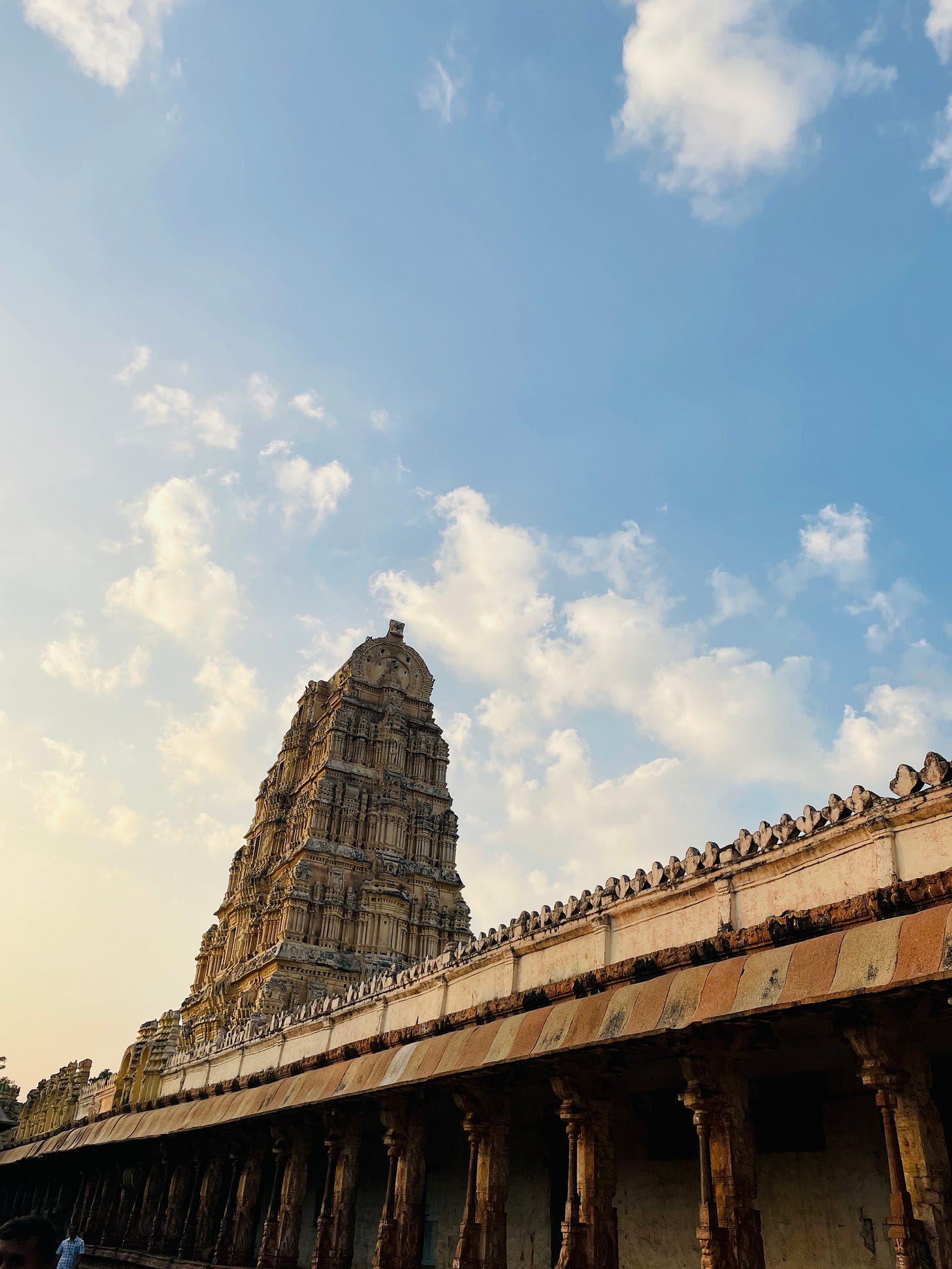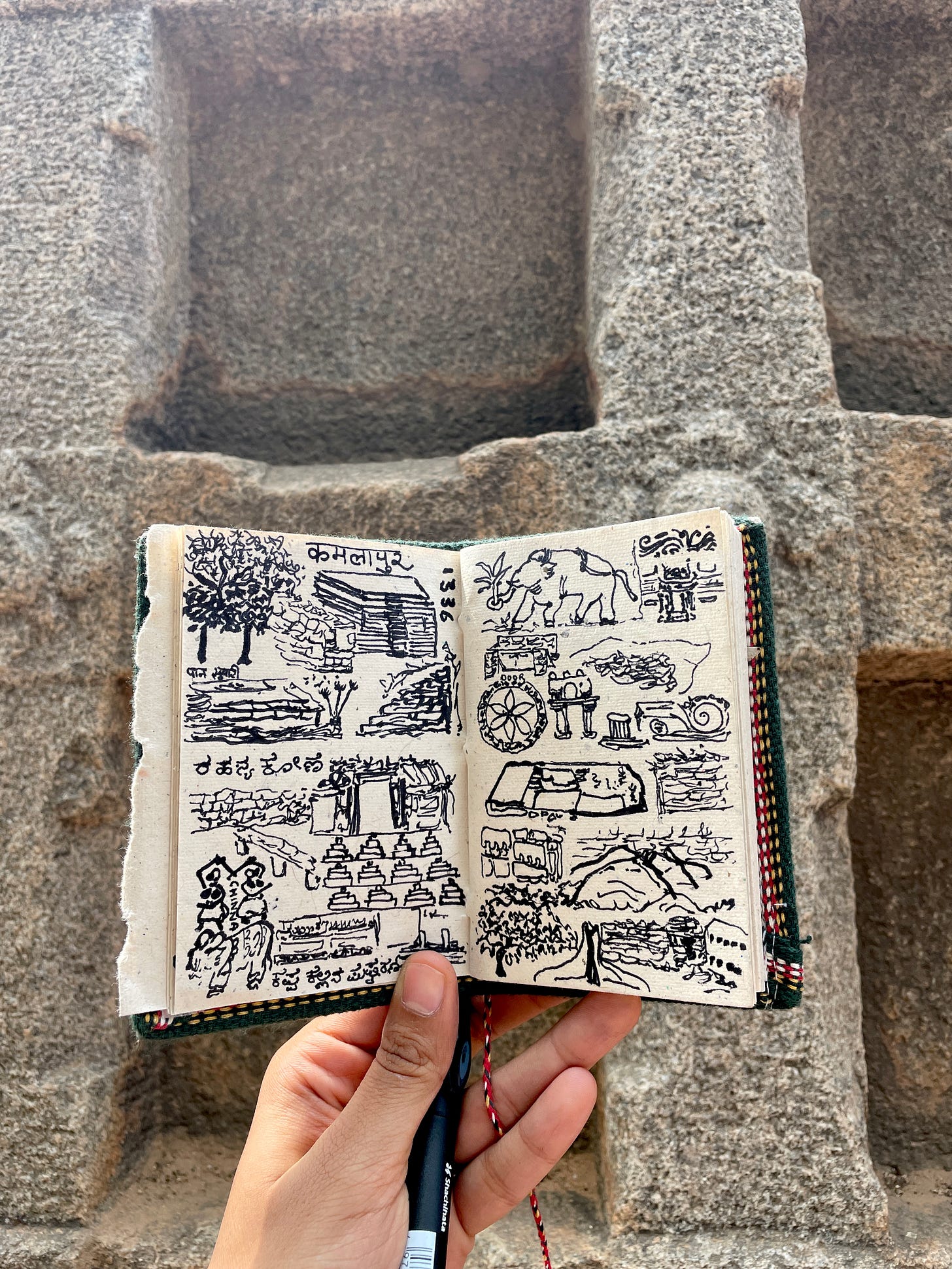5 Things I Consumed Last Week (not really 🙅♀️)
on victory city through a visual and sketch tour of Hampi
I visited Hampi, the city of ruins, in Vijayanagar district, Karnataka, India last year. I tried to capture the whole experience of visiting different heritage sites in the form of small sketches (more of which you will see later). Last week I got my hands on Salman Rushdie’s new book ‘The Victory City’, an epic based on Vijayanagar empire and hence this issue.
Victory City is many things – an Indian historical epic, a centuries-long fable, a meditation on the self-ruinous nature of power – but perhaps more than anything else, it is a story about the immortality of stories, the way a tale told will always outlive a sword swung.
To bring more experimentation to the format of this newsletter, I welcome you to a visual city tour through the city of ruins intertwined with a book annotation of Victory City - Vijaya Nagar (geddit?)
Note: If my emails end up in the ‘promotions’ tab, please move them to inbox so you don’t miss out. Don’t forget to subscribe and join 1000+ readers!
The thing with reading fables and historical fiction is that you tend to stop differentiating - the hues of myth and reality emulsify to form a kaleidoscopic narrative - one which you consider a reality. Many people who read history or historical non-fiction, tend to detest these texts. I have no such strong opinions because historical fiction in my opinion is yet another figment of imagination.
Fictions could be as powerful as histories, revealing the new people to themselves, allowing them to understand their own natures and the natures of those around them, and making them real. ~Salman Rushdie
Victory City has a grand, epical sweep — rooted in history, yet dazzlingly fantastical and, often, profoundly allegorical. The narrative’s chronological span is over 200 years, which is roughly how long the formidable Vijayanagar empire in South India lasted (from mid 14th century to mid 16th century CE). I am more than halfway through the book and I can’t stop praising it.

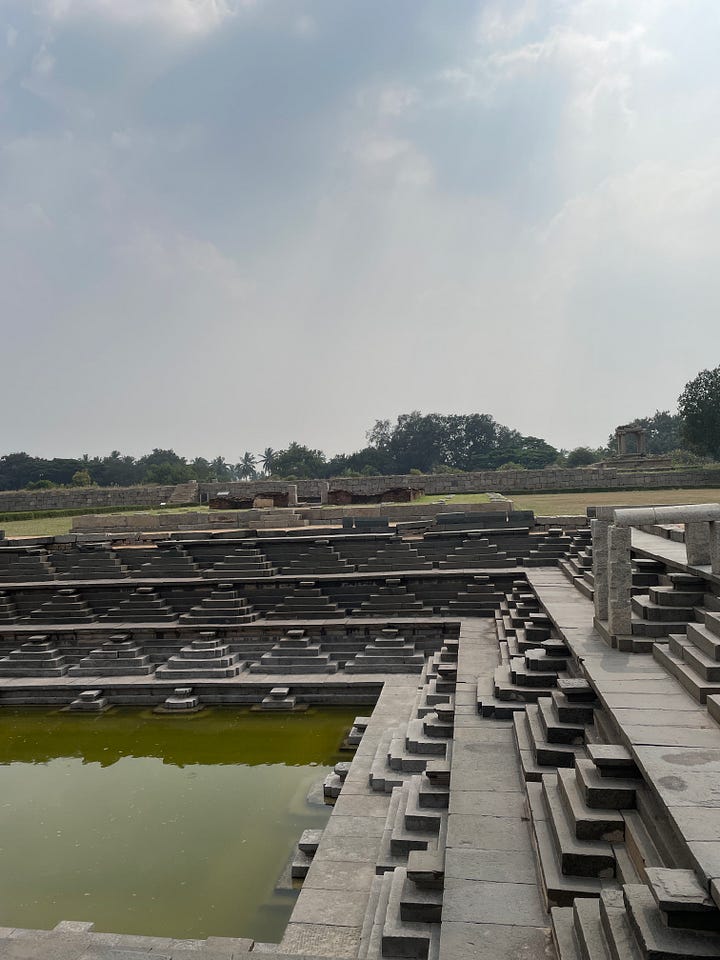
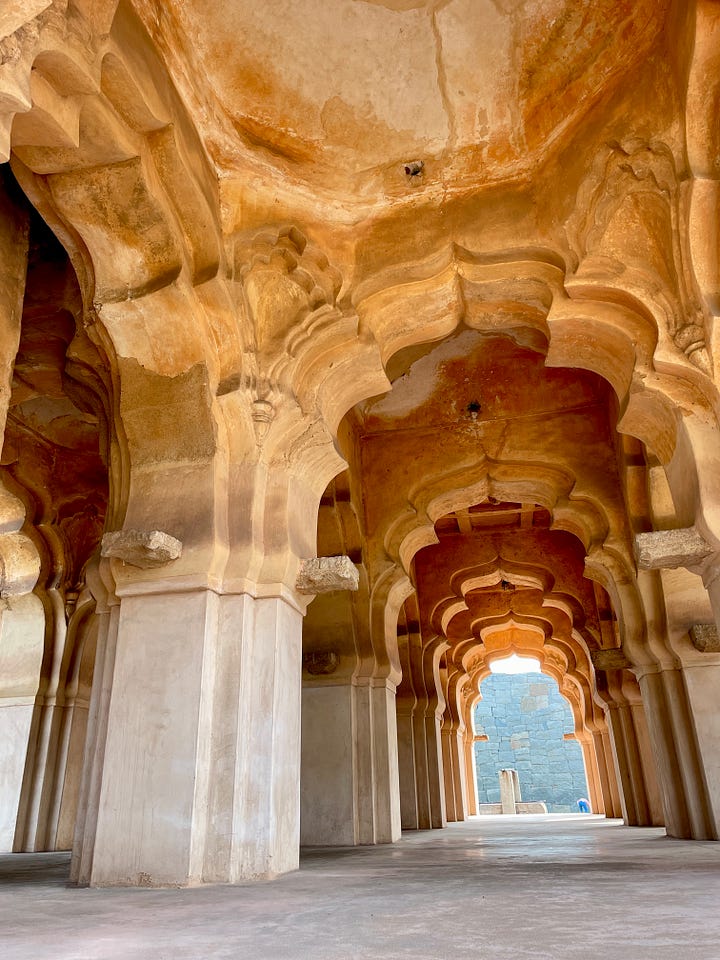
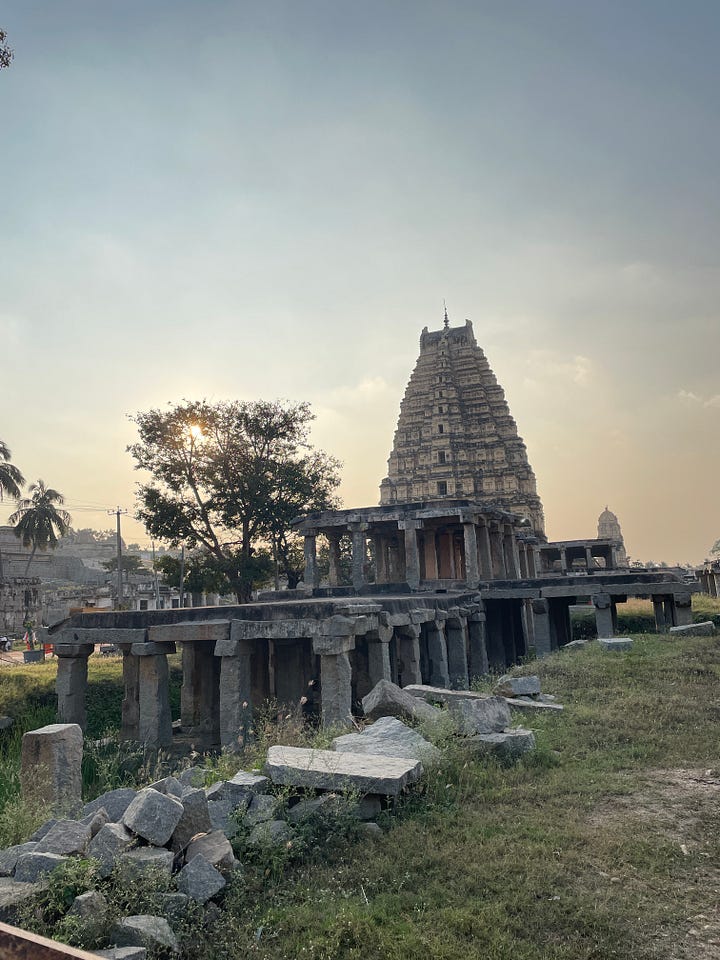
Hampi was the last capital of the Vijayanagar kingdom. Though plundered later, Hampi still retains more than 1600 monuments, including palaces, forts, memorial structures, temples, shrines, pillared halls, baths and gateways.
One of the main attractions in Hampi is Virupaksha Temple - dedicated to Lord Virupaksha, an incarnation of Lord Shiva. The temple crowned with towering gopuram (the entrance gateway) dominates Hampi’s skyline and there is a striking spot in the temple where from a peephole you will see the shadow of the Gopuram being reversed without any layer or instrument in between - a mystery unlike any other.
Virupaksha is mentioned in the book as well and as soon as I read it, it immediately took me to the stone carved walls, a government guide who explained us the historic significance of the place (quite spectacularly I must say) and who also mentioned that every year the temple celebrates the marriage of Lord Virupaksha to his consort Goddess Pampa (aka Goddess Parvati) drawing thousands of devotees.
It is only now that I can co-relate all of this because of the book, which is based on Goddess Pampa being the protagonist. I wish I could disclose more about the book but I don't want to give you any spoilers (unlike the book reviews on Google), hence I am just going to give you a theme based idea of the book (plus some emphasis to read it).
I, Pampa Kampana, am the author of this book. I have lived to see an empire rise and fall. How are they remembered now, these kings, these queens? They exist now only in words. While they lived, they were victors, or vanquished, or both. Now they are neither. Words are the only victors. What they did, or thought, or felt, no longer exists. Only these words describing those things remain. They will be remembered in the way I have chosen to remember them.
The story is told from the PoV of Pampa, surviving through more than a century of history embarking the rise, glory and fall of Vijayanagar. It is intermingled with magical realism, fictional characters and beings, which to my myopic imagination seems implausible. Nevertheless, it is a brilliantly written narrative - certainly a page turner as well.
Back to the tour, another must-visit ornate in Hampi is the Vitthala Temple. The temple is decorated with extravagant carving and the showstopper - the opulent stone chariot that stands in the courtyard. (the stone chariot you see on Indian currency). It also houses a large pushkarani, or a stepped tank and a network of water channels.
Vitthala Temple barely occupies a line in the book but takes me back to the stone laden pathway that leads it’s way to the temple, much like everything else in the bouldered city - the carvings of deities, the extravagance, the proof itself which forces you to question the unimaginable or else imagine how it must be before your existence.
Rushdie throws a lot more into the electrifying stew that is Victory City. He dwells on oppression, religious zealotry, authoritarianism, the evil colonial strategy of divide and rule, feminist values, patriarchy, the redemptive and reviving power of love, and so on. Again and again, he suggests that the human spirit is at its most vigorous and creative when it is allowed to flourish in an atmosphere of openness, tolerance, and egalitarianism.
In his re-telling of Vijayanagar through the words of the goddess Pampa, the city is undone by men's lust for power from all faiths.
History is the consequence not only of people’s actions, but also of their forgetfulness.
You should read this book if mythology is something that intrigues you or else if you have visited Hampi in India or else if you want to visit it (always good to get some background). If you don’t come under any of the above categories, you should still read it just to revere imagination and it’s power to metamorphose tales into history.
More things to come next week. Until then, happy reading!
Wondering how you can support me?
If you are a friend of this newsletter, show some love here.🐼
If you enjoy reading this, maybe share it with your colleagues, friends and family; it would mean the world to me :) or else Order a handrwitten postcard for them.
You can always reach out to me on dearhummingbird1@gmail.com. or connect with me on IG at _i__cook or use the comment section!
With a singing heart and tons of love,
The Hummingbird🌺




